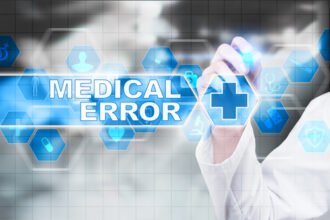Most people don’t like them. Privacy advocates abhor them. But really, how many things can you name that save lives AND generate revenues for cash-strapped local and state governments?
 Red light cameras are one such item. A recent study by the Insurance Institute for Highway Safety has revealed that the cameras saved 159 lives over a 4-year period in the 14 large US cities where the study took place.
Red light cameras are one such item. A recent study by the Insurance Institute for Highway Safety has revealed that the cameras saved 159 lives over a 4-year period in the 14 large US cities where the study took place.
Extrapolating the findings to all large US cities, Institute scientists claimed that more than 800 traffic fatalities would have been prevented during the course of the study.
To reach these conclusions, the scientists compared fatal car crash rates in US cities with populations of at least 200,000 for two 4-year periods: 1992-1996 and 2004-2008. They excluded cities that had already deployed red light cameras in the earlier period, and cities that instituted cameras during the later period.
In the 14 cities that used red light cameras during 2004-08, the rate of fatal red light running crashes was 35% lower than in 1992-96. The crash rate did drop in cities that never deployed camera programs, but only by 14%.
Based on these data, the scientists determined that the rate of fatal red light running crashes was 24% lower in cities with cameras in 2004-08 than it would have been had they not deployed the cameras.
In fact, the benefits of the red light camera programs were actually larger than this. The rate of all fatal crashes at intersections with signals (not just red light running crashes) dropped by 14% in cities that deployed red light cameras, whereas it increased by 2% in other cities.
The report did recognize earlier findings showing an increase in rear-end collisions in areas governed by red light cameras, but explained that right-angle crashes—the kind that are reduced by the cameras—create more severe injuries and damage than rear-end ones, so the net impact of the cameras remains positive.
The likely explanation for the beneficial effect is that drivers develop more cautious driving behaviors when they know red light cameras have been deployed.
“The cities that have the courage to use red light cameras despite the political backlash are saving lives,” said Institute president Adrian Lund in a press release. “Somehow, the people who get tickets because they have broken the law have been cast as the victims,” Lund added. “We rarely hear about the real victims — the people who are killed or injured by these lawbreakers.”
Since 2000, the number of cities using red light cameras has grown from 25 to 500. Although national surveys suggest there is popular support for red light camera programs, opponents have turned up their rhetoric in recent years, claiming the programs violate drivers’ privacy, among other things.
Drivers frequently denounce red light cameras as a naked money-making scheme, and there is no doubt the cameras are big revenue generators. Washington, DC for example, pocketed nearly $7.2 million on more than 85,000 camera-generated red light violations between June 2009 and May, 2010.
Aside from that, most cities publish the locations of their red light cameras on their Web sites.
Manpower issues make it prohibitively expensive to police all traffic intersections on a regular basis.
“There simply are not enough resources to put a police officer at every intersection, and enforcement at intersections is often dangerous,” Barbara Harsha, executive director of the Governors Highway Safety Association said in an interview. “We have known for years that when the public sees a law being enforced, they will respect it and drive more safely. That has been true with drunk driving and seat-belt laws, and it is also true with red-light cameras.”






